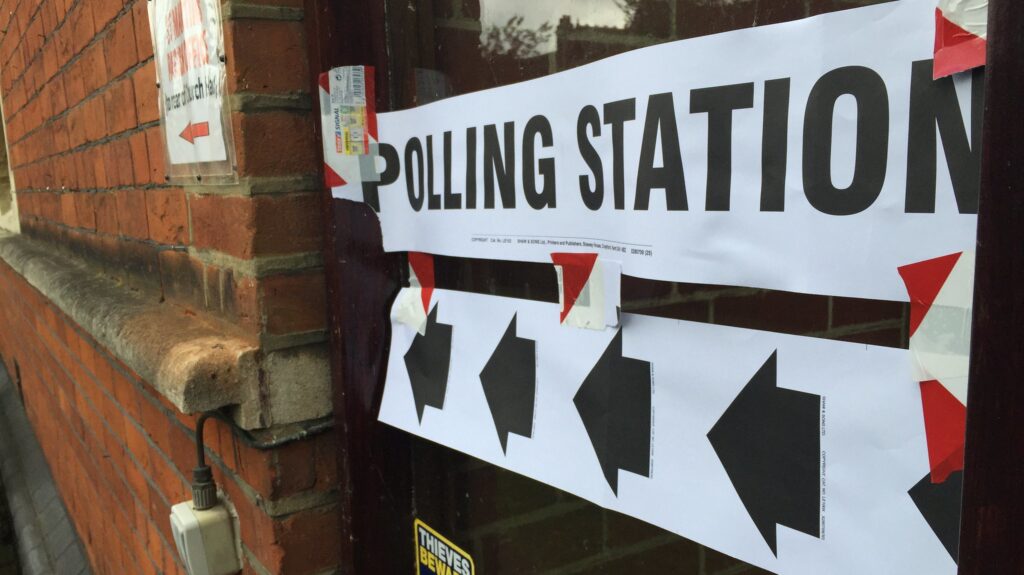Elisabetta Laurence
Generally, the Conservative party doesn’t hold hands under the table with youth voters. This is strange because Michael Gove loves to party as much as the next 18-year-old. But Labour, with their impending landslide, isn’t trying very hard to court the young either.
In the 2019 election, 18 to 24-year-olds were the most likely age group to vote Labour and the least likely to vote Tory. It’s largely the same story for this year’s election. The divergence between a young person’s voting inclination and Conservative popularity may even deepen further.
YouGov has even reported this year that only one in ten people under the age of 40 will vote Conservative. Fishing around in the “reasons why” hat, we find the unsurprising suspects: climate, housing, university fees, a poor job market, and a larger craving for social justice. But does this mean Labour has it all sewn up? Are they specifically targeting these issues? Almost certainly not—not that you’d guess from their complacency.
“At the beginning of this election period, Dishy Rishi did something incredible.”
Despite their passion (and the inevitable future growth of the vote share), the cohort size and turnout of youth voters in this country are only a fraction of older generations. So, both mainstream parties make the mistake of believing they’re less important. But what happens when mainstream politics doesn’t engage with its future vote-winners? Nothing good, that’s for sure.
Rishi’s Pitch Against Youth Voters
“Let’s bolster the character of the youth by stripping them of choice and agency.”
At the beginning of this election period, Dishy Rishi did something incredible. He rallied against the status quo and put a promise at the heart of his manifesto that pivots around young people. Flinging open Conservative arms to embrace today’s youth, he promised to prioritise community values and “youth opportunity” just as long as the little buggers are clad in military camouflage while they do it.
In a scramble to save their campaign amid a legendary first week of gaffes, Sunak outlined that if elected, his Tory government would ensure 18-year-olds would have to spend mandatory time in a national service. The party explained: “This is an investment in both the character of young people and our security”.
No, that’s good, guys, that’s really good. Let’s bolster the character of the youth by stripping them of choice and agency. That’ll inspire faith that their government considers them serious and valued societal contributors, especially as the concerned group isn’t yet old enough to vote against it. Besides, the Tories are in the perfect moral position to implement this – they’re such fantastic role models.
We can skip over the Partygate scandal that saw clinking champagne flutes while people sacrificed saying goodbye to dying loved ones to stay at home. Let’s ignore the three PMs in two months (one of which plunged Britain to the brink of catastrophic recession and couldn’t outlive a lettuce). We can just avert our gaze from the crumbling NHS with now trebled waiting lists. Who needs health checkups anyway?
It even appears the Tories, who have such faith that young people will connect with policies their policies, went above and beyond to make sure as few youths will be able to hit the polls as possible. In May 2023, they passed a law that photographic ID is now mandatory to cast your vote – but forgot to include youth variants of acceptable ID forms. They even went as far as to gerrymander some shiny new constituencies for us. These are policies that even high-profile Tory and Victorian ghost Jacob-Rees Mogg believes will reduce the spread of votes from people who typically skew young or left of centre.
I know youth voters appreciate the consideration.
Starmer Leaves Youth Voters Stranded
“What’s the culmination of all this? A worrying rejection of mainstream politics, and a total sense of resignation.”
So, where does Keir’s view on the youth fit in? It’s hard to tell whether young people are clapping in time to his pitch or cocking their eyebrows in scepticism. Not that he seems to care. His unnecessary lobbying against the passions of the young (particularly trans people) goes beyond what could be considered a vote-winning strategy. It begs the question: is he complacent, indifferent, or fractionally punishing us for the Corbyn “youthquake”? Either way, he’s left youth voters in the lurches.
Rather expectedly, in typically progressive cities like Bristol, many voters are moving left towards figures like Green party co-leader Carla Denyer. However, we’ve also seen a youth voter surge towards the right. Farage’s new Reform UK party, with its dedicated TikTok and social media strategy, is hoovering up more young votes than you may expect—particularly young men.
There’s also the good old fatalism factor. Gen Z has sprouted among the weeds of the dangerous rise of the internet, the plundering ruin of climate change, and a pandemic that snatched biologically crucial years of socialisation and learning. This is all amid dysfunctional governments and destructive leaders who have proven incapable of addressing critical challenges that impact their future. What’s the culmination of all this? A worrying rejection of mainstream politics and a total sense of resignation.
“This is our lot?” youth voters ask of leaders like Starmer, so largely don’t even bother to address the question.
READ NEXT:
-
WHY IS TIKTOK THE NEWEST CAMPAIGN TRAIL FOR UK POLITICIANS
- YOUNG VOTERS ARE BEING EXCLUDED IN THE UK – CAN WE NOT HAVE ANYTHING?
-
GREAT BRITISH ENERGY: WILL LABOUR’S CLIMATE SOLUTION WORK?
Photo courtesy of RachelH_on Flickr. No changes were made to this photo. License available here.

